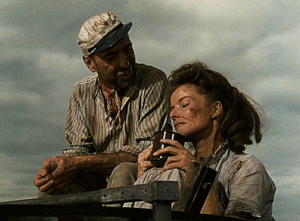Johnny Belinda (1948)

…………………………………………………
Johnny Belinda Movie Review
Johnny Belinda is a 1948 melodrama film directed by Jean Negulesco and starring Jane Wyman and Lew Ayres. It is such a moving and well made Oscar nominee.
………………………………………………….
“There’s only one shame –
failing a human being that needs you“
…………………………………………………..
…………………………………………………..
A kind doctor volunteers to tutor a deaf-mute woman, but scandal starts to swirl when his pupil is raped and falls pregnant. This is such an emotionally powerful, superbly crafted melodrama that elevates its genre to the status of an underrated gem that should be considered a classic of 40s cinema, but is unfortunately rarely mentioned as such today for unbeknownst reasons to me.
This film a surprisingly dark and honest tackling of rape, a subject that had previously never been depicted on screen. It’s shown as something that is to be despised and criminalized and as an act that isn’t just a terrifying moment in the present, but one that leaves numerous consequences for the victim in her future as well. The film also strongly depicts the dangers of false accusations, mob mentality and how everything can go wrong when the case of self defense is not recognized as such by law.
Belinda is a deaf-mute woman, and through her the film also was groundbreaking for the time as Hollywood rarely portrayed people with this infliction at the time. Jane Wyman ended up winning the Oscar for this entirely silent performance and she undeniably deserved it as this role was incredible and her work in it was truly remarkable. This was probably her career-best work as she showed that she could sell a plethora of emotions with no words spoken and just on the strength of her facial expressions. It’s a beautiful performance that wonderfully echoes the delights and elegance of silent cinema.
…………………………………………………..
…………………………………………………..
This film has a tremendous ensemble cast and all the other performers did wonderful work here. My favorite was clearly Lew Ayres, who here was incredibly sympathetic and charming. His character represents one of the kindest doctors to ever grace the silver screen. I rooted for the two of them to find happiness together and every single moment between the two was so heartwarming and so endearing that they came as a respite from all the terrible drama brewing around them.
Charles Bickford and Agnes Moorehead were reliably terrific in their excellent supporting turns and a lot of the praise should also be directed toward the very memorable Jan Sterling and the eerily menacing Stephen McNally. Literally everyone did a great job on this superbly cast and performed film.
Johnny Belinda was also very well directed by Jean Negulesco and phenomenally edited and paced. Max Steiner’s music is astonishingw. This score is so classical and elegant that I loved listening to it throughout. Another technical highlight is its stark, polished black-and-white cinematography that is warm at times and very atmospheric when needed. The film benefits from such a sophisticated, smart screenplay that did transcend some of its limitations and clichés (the courtroom drama third act is quite familiar for the era) through the sheer technical craftsmanship on display and an unusually empathetic, emotionally driven tone that worked wonders to make me care for its characters without ever being too maudlin or manipulative.
…………………………………………………..
…………………………………………………..
Johnny Belinda was a groundbreaking movie for its period as it tackled the difficult subject of rape while also depicting a deaf-mute protagonist. It’s an unusually honest, dark and emotionally driven story that features strong characterization and tremendous performances from its phenomenal ensemble cast – Lew Ayres was wonderful as one of the kindest doctors in cinema history and Jane Wyman undeniably deserved her Oscar for what is pretty much a silent performance, one that relied heavily on her facial expressions to sell her emotions and the story at large. Beautifully scored, strikingly shot and very well directed, Johnny Belinda is truly one of the best movies of 1948, a no small feat for this banner year.
My Rating – 4.5










